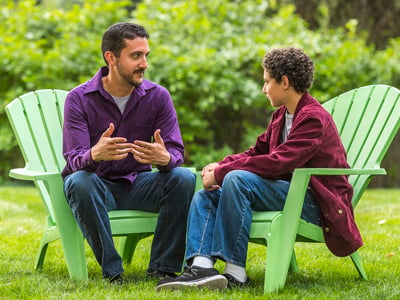- Doctors & Departments
-
Conditions & Advice
- Overview
- Conditions and Symptoms
- Symptom Checker
- Parent Resources
- The Connection Journey
- Calm A Crying Baby
- Sports Articles
- Dosage Tables
- Baby Guide
-
Your Visit
- Overview
- Prepare for Your Visit
- Your Overnight Stay
- Send a Cheer Card
- Family and Patient Resources
- Patient Cost Estimate
- Insurance and Financial Resources
- Online Bill Pay
- Medical Records
- Policies and Procedures
- We Ask Because We Care
Click to find the locations nearest youFind locations by region
See all locations -
Community
- Overview
- Addressing the Youth Mental Health Crisis
- Calendar of Events
- Child Health Advocacy
- Community Health
- Community Partners
- Corporate Relations
- Global Health
- Patient Advocacy
- Patient Stories
- Pediatric Affiliations
- Support Children’s Colorado
- Specialty Outreach Clinics
Your Support Matters
Upcoming Events
Colorado Hospitals Substance Exposed Newborn Quality Improvement Collaborative CHoSEN Conference (Hybrid)
Monday, April 29, 2024The CHoSEN Collaborative is an effort to increase consistency in...
-
Research & Innovation
- Overview
- Pediatric Clinical Trials
- Q: Pediatric Health Advances
- Discoveries and Milestones
- Training and Internships
- Academic Affiliation
- Investigator Resources
- Funding Opportunities
- Center For Innovation
- Support Our Research
- Research Areas

It starts with a Q:
For the latest cutting-edge research, innovative collaborations and remarkable discoveries in child health, read stories from across all our areas of study in Q: Advances and Answers in Pediatric Health.


Supporting the Family of a Child with Mental Health Challenges

When a child encounters significant mental health challenges, their parents and caregivers often feel isolated. The stress of the experience, and the stigma that still surrounds mental illness, may make them less likely to ask for help. And yet, if you have loved ones in your life who are caring for a child with a mental health condition, they could probably use some support — whether they have asked for it or not.
The toll of the youth mental health crisis on families
The growing number of kids in crisis means a growing burden on the adults who care for them, too. Caring for a child or teen with mental health challenges can be extremely draining, scary and stressful.
“This is no longer ‘just the kids’ problem,’” said Lauren Henry, PhD, a child and adolescent psychologist with the Children’s Hospital Colorado Pediatric Mental Health Institute. “The good news is, there are things you can do to help, even as a non-mental-health expert. You can help care for the caregiver, so they can best care for their child.”
How to help parents and caregivers of a child in mental health treatment
Dr. Henry offers these tips to support friends, relatives, coworkers or neighbors with a child or teen experiencing mental health issues, no matter the severity. Whether their child is in intensive outpatient therapy or a partial hospitalization program, had a recent suicide attempt, or is currently in the hospital, it all starts with a mindset of non-judgmental acceptance and being prepared to listen.
First, reach out with empathy
Simply reaching out to acknowledge the struggles can mean so much to the parents and caregivers. It sounds simple, but it can be difficult to do.
"A lot of times, we worry that we’re going to say the wrong thing or seem offensive, or nosey, so we don’t reach out even though we want to help,” Dr. Henry said. “This is a good opportunity to practice empathy and be open through active listening.”
Empathy doesn’t mean communicating our emotions or comparing experiences while someone in distress describes their feelings or circumstances. It means demonstrating a level of understanding, so they don’t feel alone. Ask them to explain what they’re dealing with, and then listen. Summarize or repeat back to them what they said once they’ve finished saying it. They’ll feel heard, and you’ll feel helpful – which will enable them to be comfortable opening up even more.
Asking open-ended questions can start the dialogue and help the parents or loved ones know you care and that you want to understand. Open-ended questions also allow them to answer on their own terms so they feel safe. As you talk, offer empathy and try to discover their needs.
An easy way to start the conversation is, “I am someone who cares and wants to understand. What do you want me to know about what you're going through?” This allows them to stay in control, and you can listen and ask more specific questions based on what you hear.
Listen for needs and make specific offers of help
If a child is hospitalized for a broken leg, for example, friends tend to donate meals, coordinate babysitting or send flowers. Acts of kindness can also help parents when a child or teen is struggling with a mental health challenge. But when parents and families are dealing with something as overwhelming as mental illness, they might find it difficult to make decisions or articulate exactly what they need.
Instead of using generic phrases like “I'm here for you,” try figuring out exactly what they need in the first place. Listen for their stressors. Then you can ask specific questions such as, “Can I watch your other kids while you take your daughter to her therapy appointment?”
These specific offers are less overwhelming than an open-ended, “How can I help?” and they take less thinking on behalf of the parent because they only require a yes or no response. The following examples can be useful when you’re at a loss for words to best help your friend:
- Can I bring over dinner this Thursday or Friday?
- I’m picking up your laundry this Saturday at 10. Just leave it on the porch if you don’t feel like visitors.
- We’re headed to the grocery store after work tomorrow and will bring a few staples by on the way home. Any specific requests?
- I need to take a walk and clear my head – care to join me?
Encourage self-care
Parents will do anything to support their child, and that sometimes means neglecting themselves. Even though they’re stressed and may feel run-down, when dealing with a child in need, self-care can be the last thing on any parent’s to-do list.
During this time, caregivers are dedicating all their brain power to taking care of their child, so it can feel contradictory to say, “Think about yourself right now.” Yet by suggesting small, everyday acts, you can encourage consistent self-care such as regular walks, coffee once a week, a short conversation, or even an occasional night out with friends. Encourage caregivers to eat well and get enough sleep. Invite them over for a healthy dinner or a quick walk to talk through whatever is on their mind. These are all simple, doable, manageable things that support your loved one, even with the heavy load they are carrying.
Is what they need more than you can provide?
As friends, we can only do so much with our offers to help. Parents and caregivers of a child or teen with mental health challenges may need additional support from experts or people who know exactly what they’re going through. But how can you convince them to seek this out when they’re already overwhelmed?
Dr. Henry suggests that instead of saying, “Perhaps you need professional help,” which can feel judgmental, you might try, “Do you feel like you have the right support in your life right now?” This takes the feeling of blame off the parent for not knowing what to do and helps them open up to the idea of seeking help.
“So first, make sure they know you're there for them. But also, let them know that as a friend, you aren’t equipped to provide the kind of intensive support that they might need right now,” says Dr. Henry. She also suggests phrases such as, “You know I'm here for whatever you need when it comes to daily tasks or just a friend to listen. But when people are going through the kind of stress you’re going through, they often do better with someone who better understands and is expert in this type of situation.”
Another way to show support is by reminding your friend or loved one that their child’s therapist can likely direct them to therapists as well as books and low and no-cost parent/caregiver support groups. Groups offer a unique form of support because the members are peers who have gone through similar experiences themselves.
Create a safe space
It is emotional and stressful for parents when their child goes through any mental health episode, and the added stigma in our society around mental health can make them hesitant to disclose their challenges. Parents of children with mental health conditions can be especially sensitive to the feeling that they did something to cause their children’s condition, often because other people around them have made them feel that way. But what we know about mental illness is that it is caused by a multifactored combination of elements, often including genetics, that no one should judge.
“These parents want to exist in a world where they are not blamed for their child’s behavior,” Dr. Henry says. “If parents feel safe sharing their experience with friends or family, they’ll be more likely to lean on a support network, which will help them to deal with their child’s mental health without losing their own health in the process.”
Show support without being judgmental
For the best chance of getting through to your friend or loved one and guiding them to more support, Dr. Henry recommends being as nonjudgmental as possible. Remember, even though we may not feel like we are being judgmental, sometimes judgments can sneak in and we don’t even realize it’s happening. For example, asking “Have you tried (fill in the blank)?” is a common question that seems natural, but it can come across as aggressive. Why? Because in most cases, parents and caregivers have already tried what you’re referring to, but it didn’t work.
By using these tips, you’ll create a safe space for families so they can better serve their kids. By identifying any judgment or bias you have prior to asking that first question, by not jumping to problem-solving mode, and following through with your offers to help, you’re creating the kind of safe haven your loved ones truly need, in a time when they really need it.



 720-777-0123
720-777-0123






